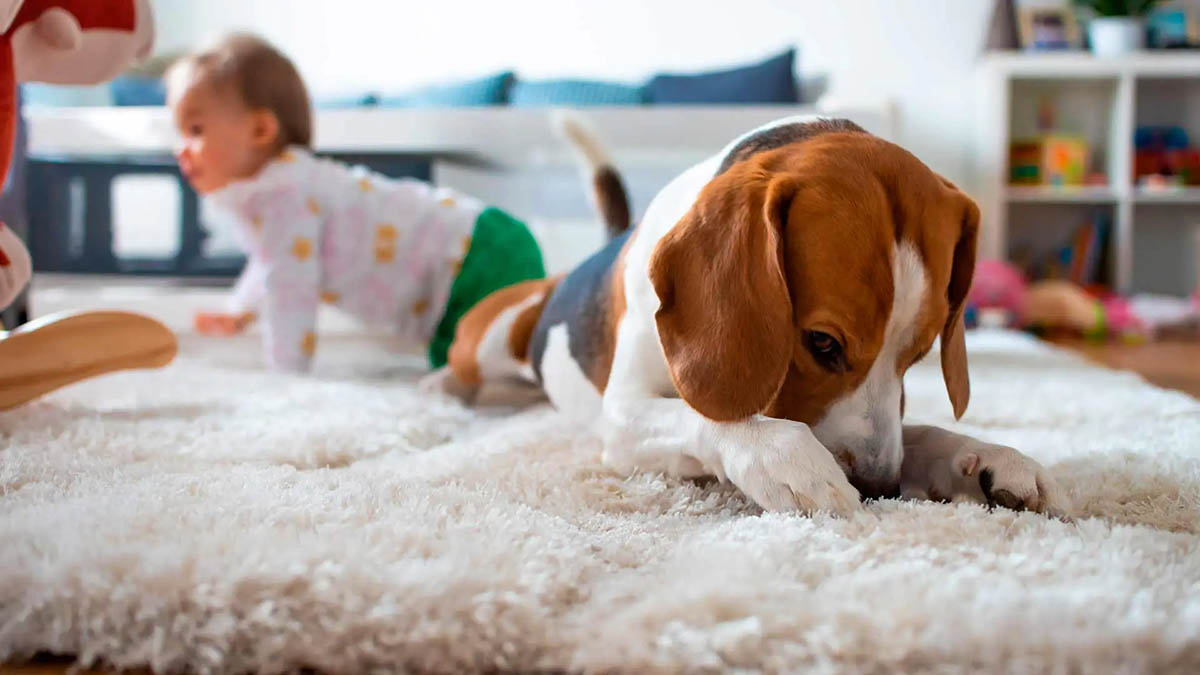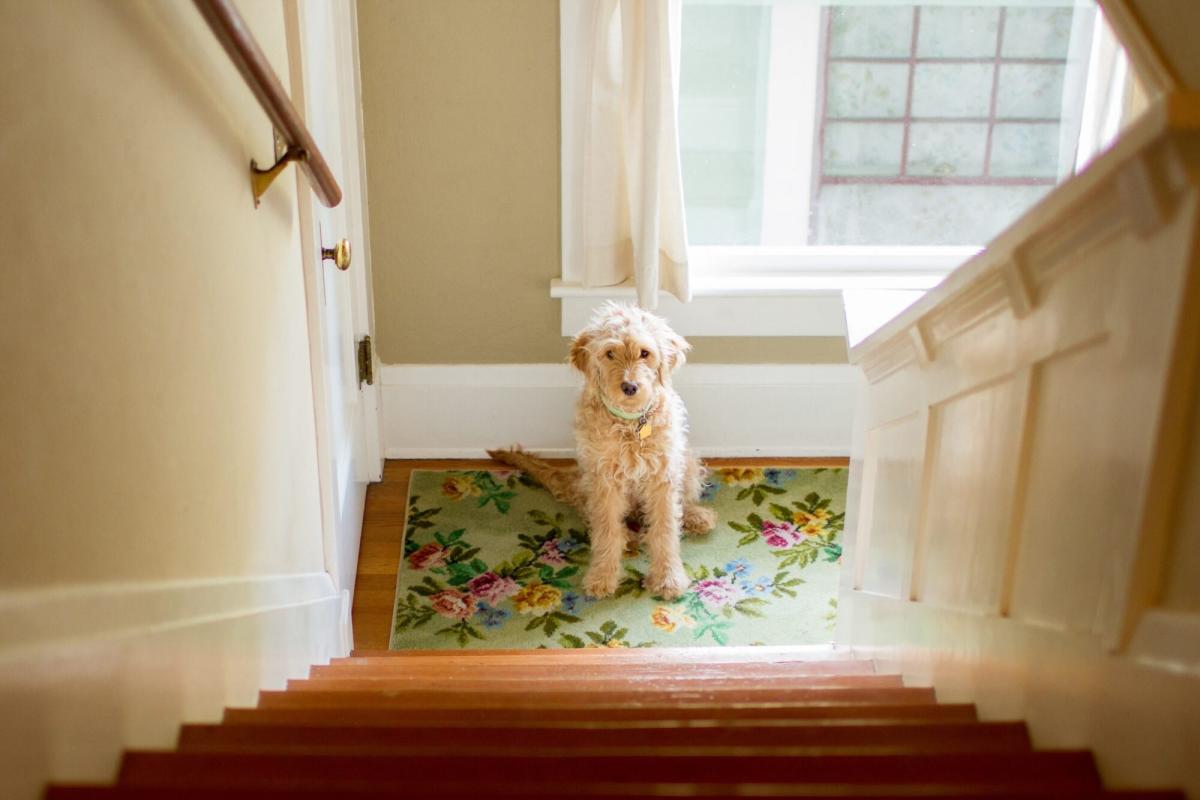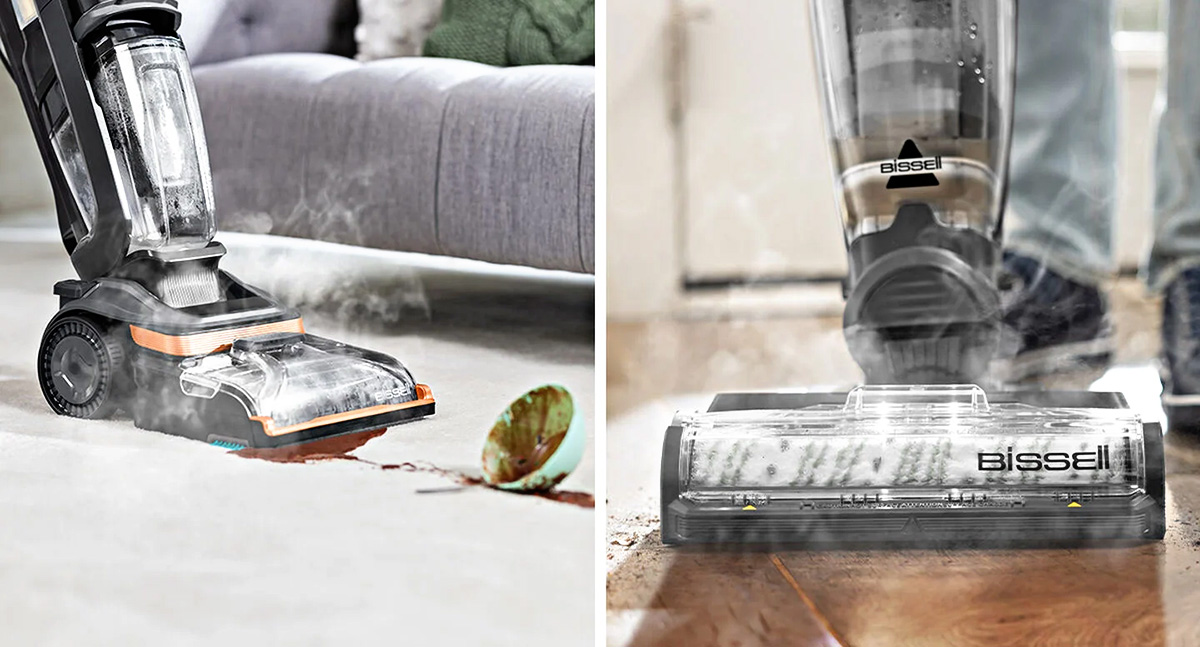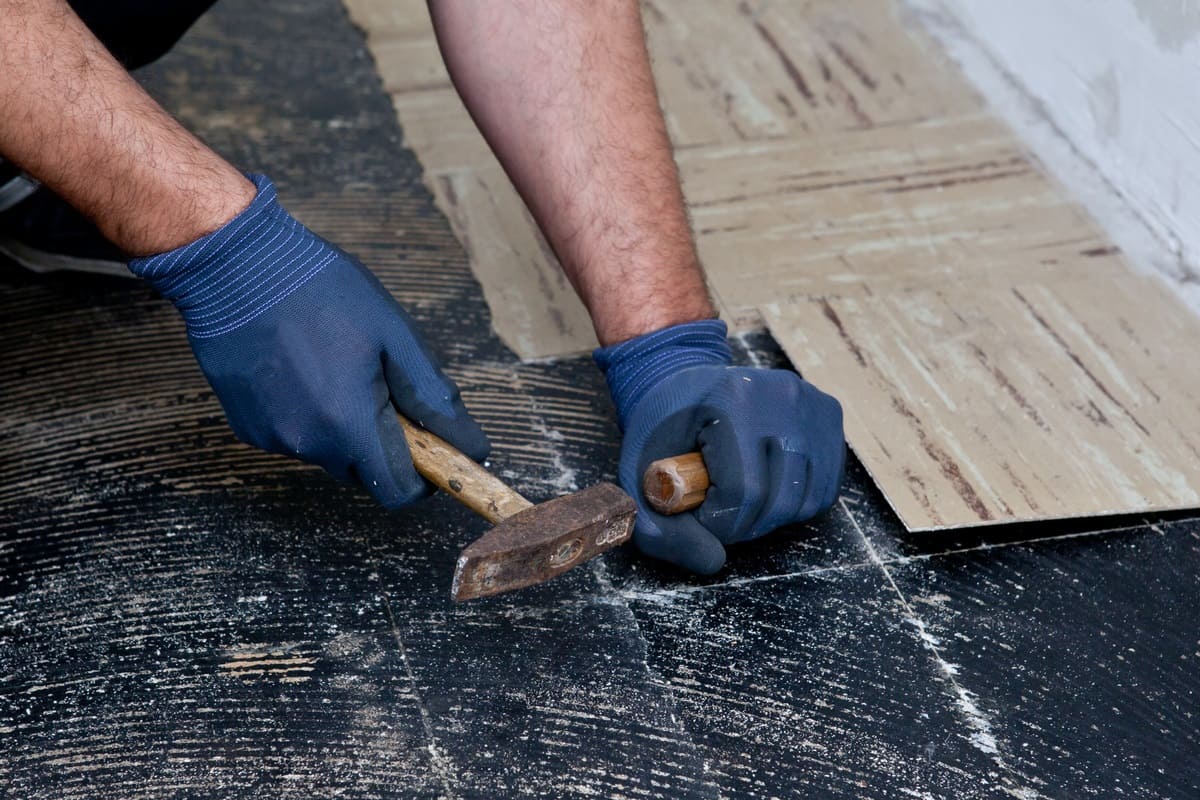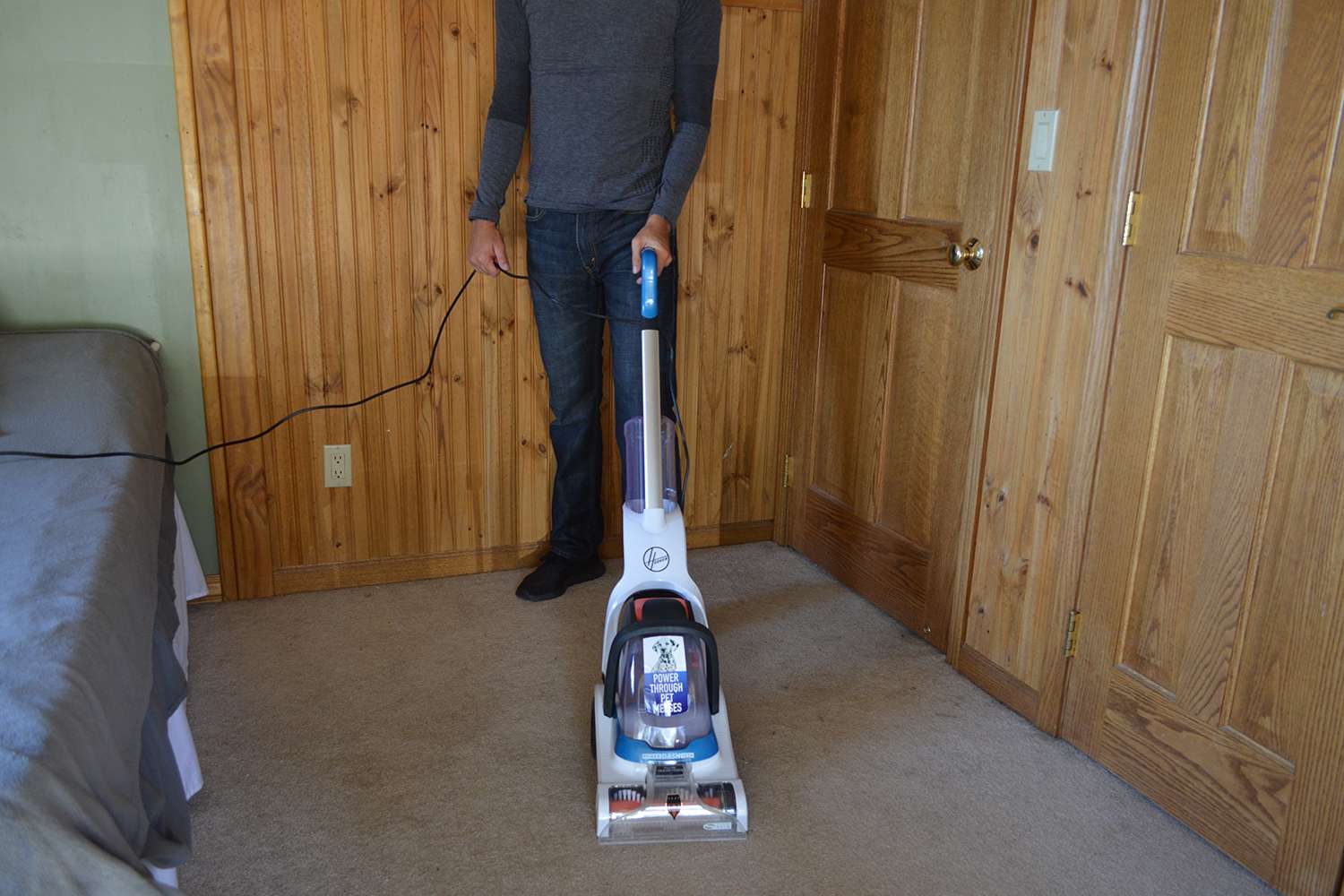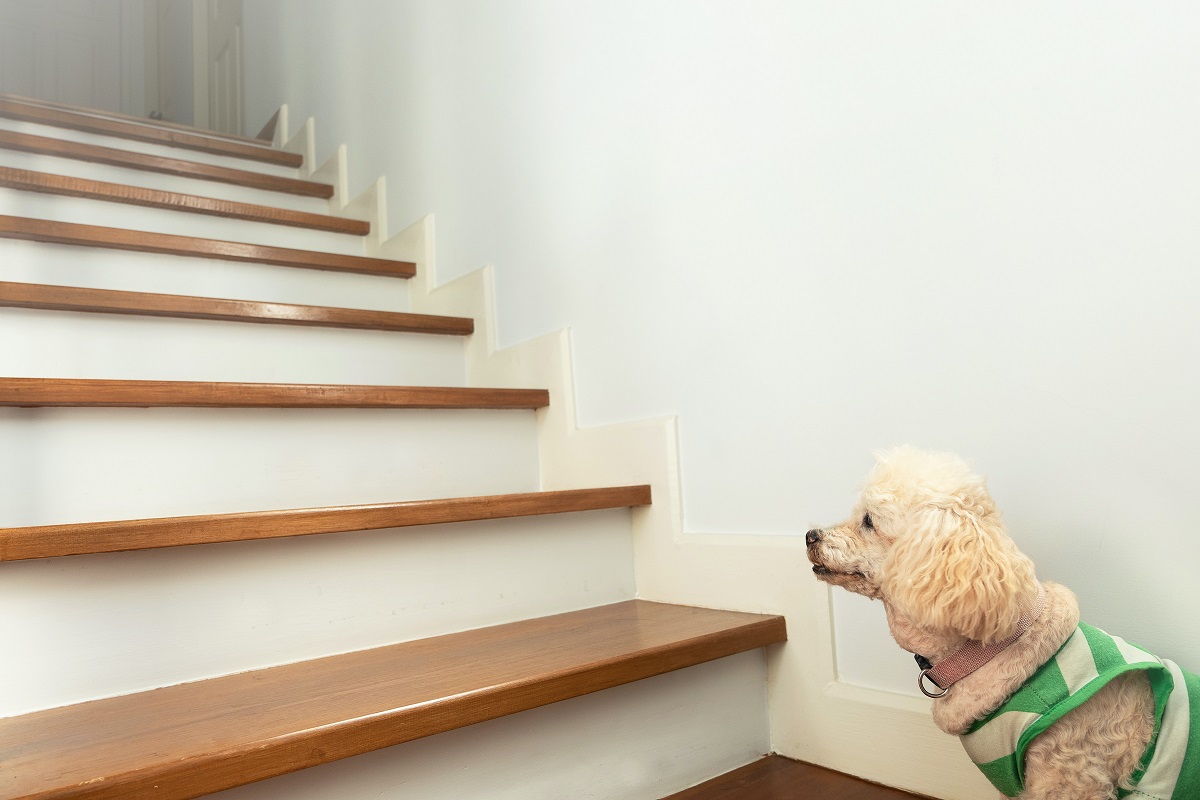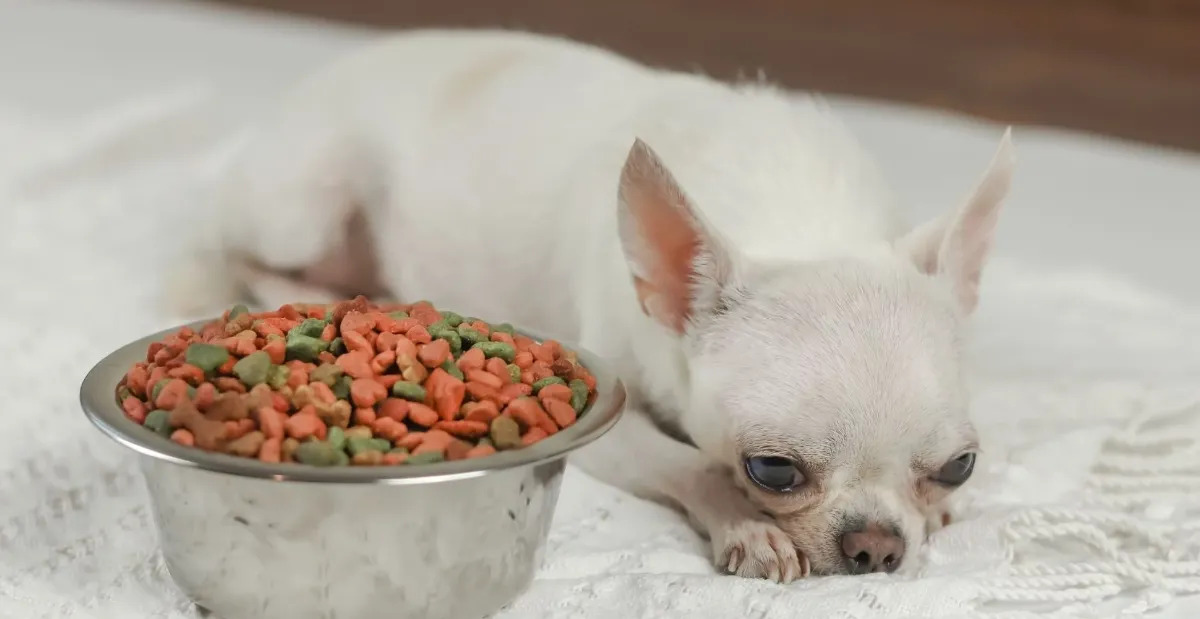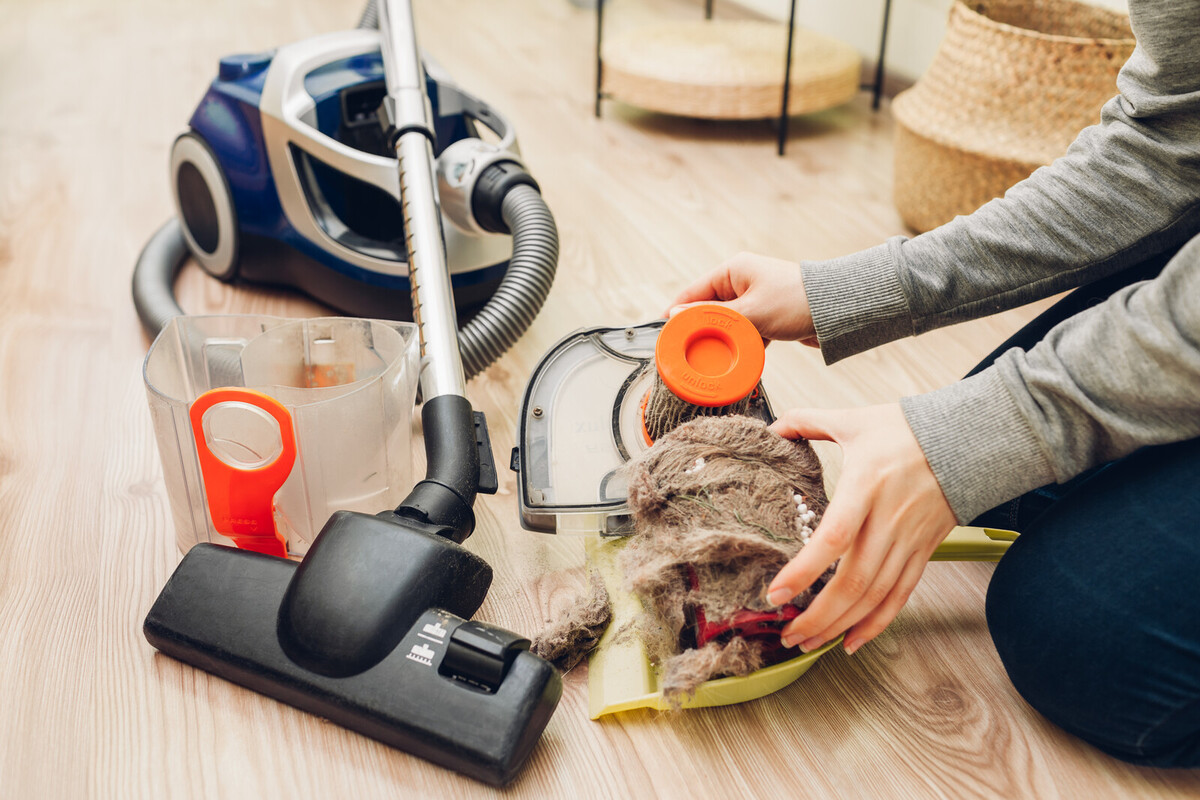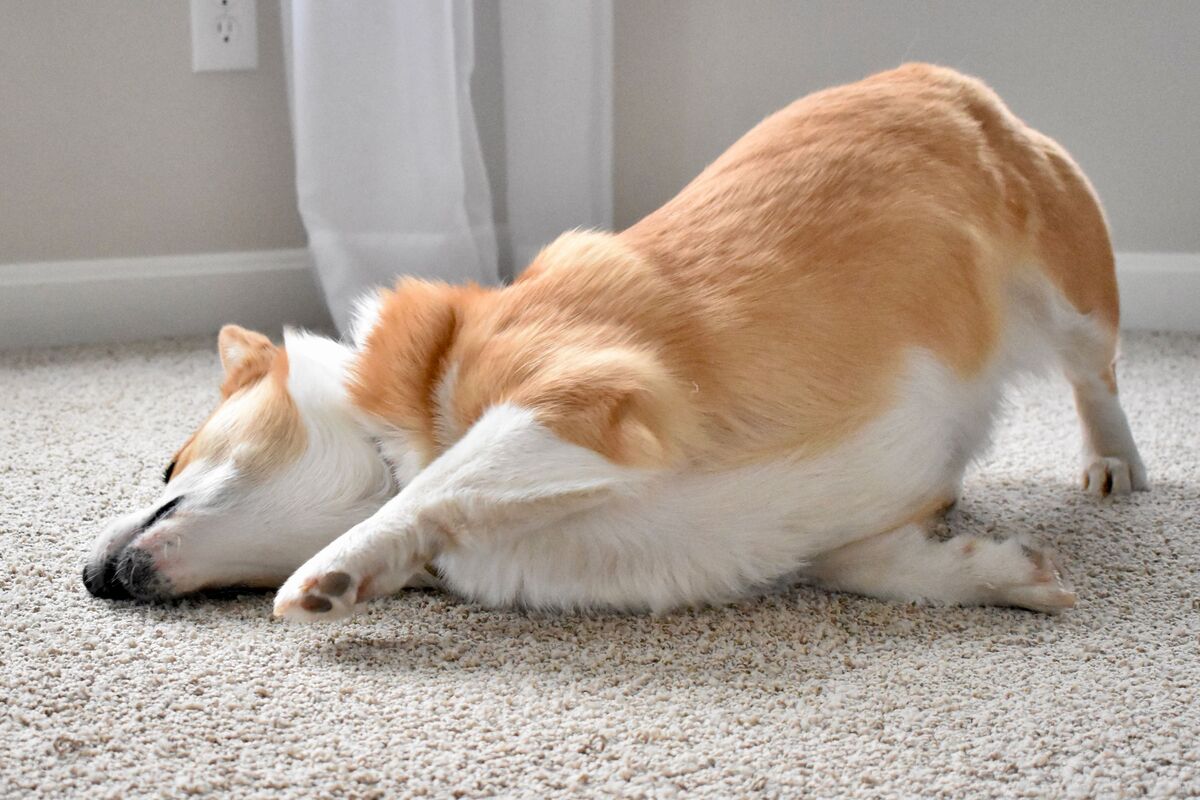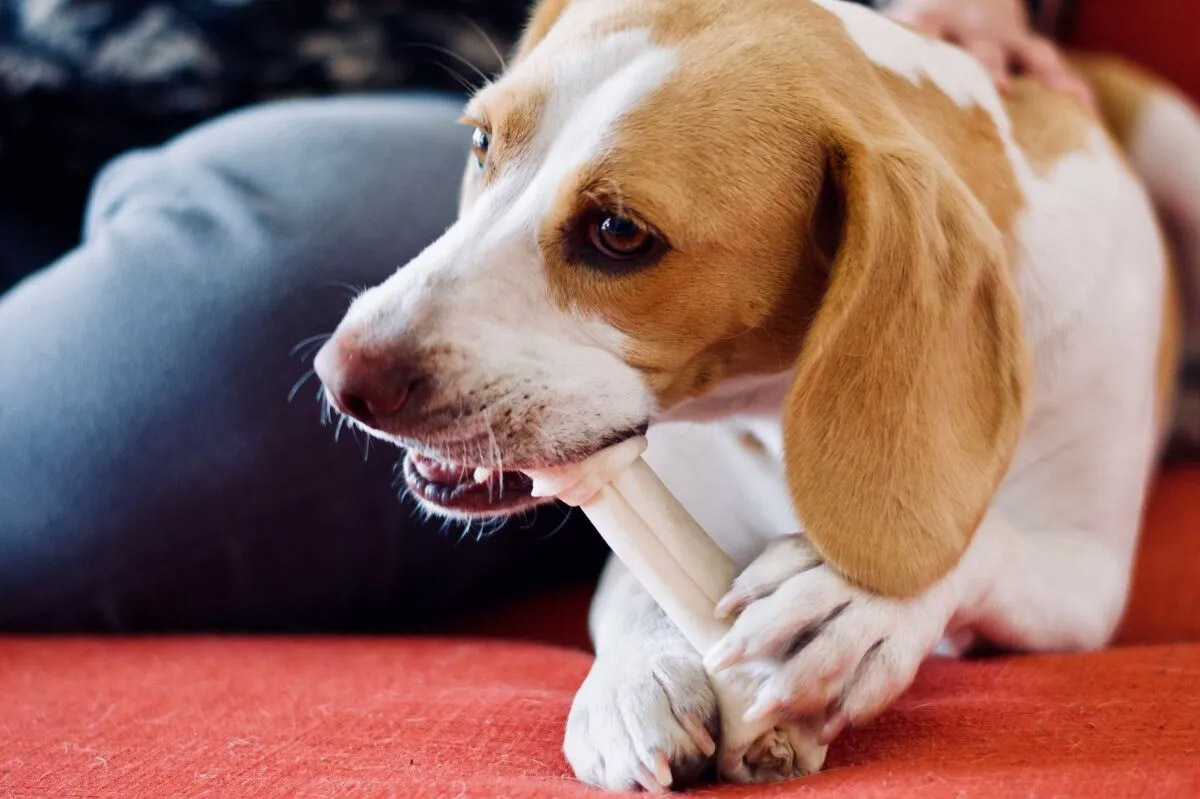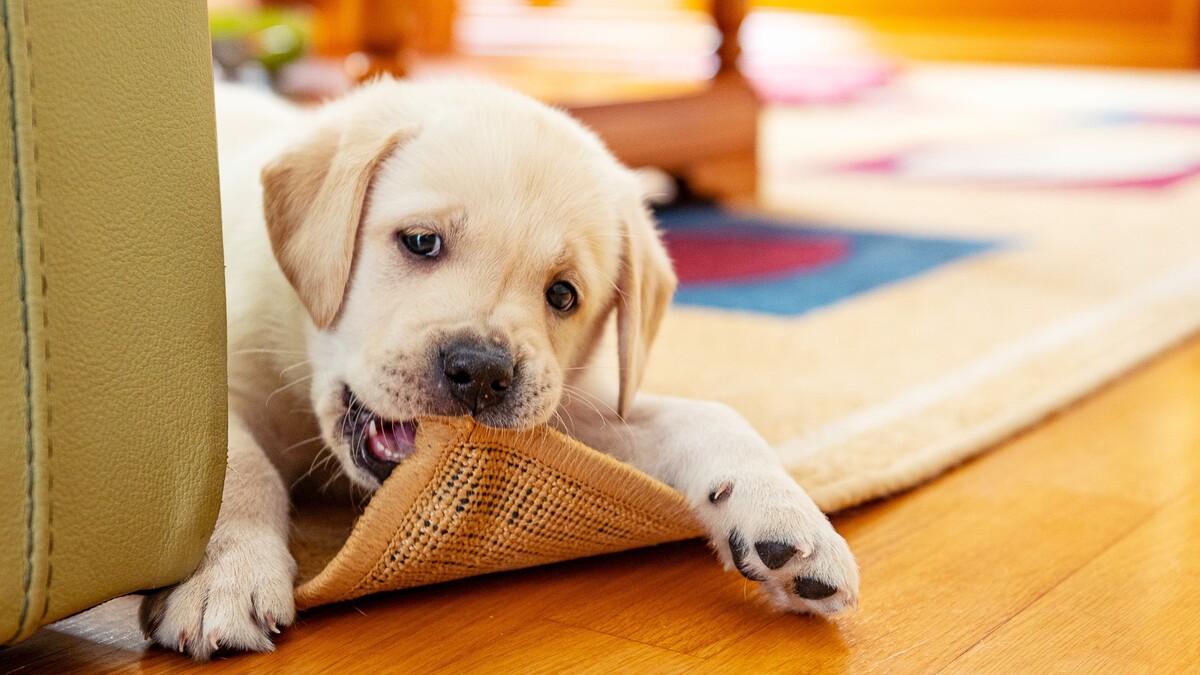

Articles
Why Is My Dog Ripping Up The Carpet
Modified: February 25, 2024
Discover helpful articles on why your dog is ripping up the carpet and find solutions to address this behavior. Keep your home intact with expert advice on dog training and behavior.
(Many of the links in this article redirect to a specific reviewed product. Your purchase of these products through affiliate links helps to generate commission for Storables.com, at no extra cost. Learn more)
Introduction
Have you been experiencing the frustrating phenomenon of your dog ripping up the carpet? This destructive behavior can be a headache for pet owners, as it not only damages your flooring but may also pose a safety hazard for your furry friend. Understanding why your dog engages in this behavior is crucial in order to address the issue effectively.
Dogs can rip up the carpet for various reasons. Sometimes, it is a result of boredom or lack of exercise, while in other cases, it may be a sign of separation anxiety or teething. It is also important to consider any underlying medical issues that could be contributing to your dog’s behavior.
In this article, we will explore the possible reasons behind your dog’s carpet ripping habits and discuss strategies to help curb this behavior. By addressing the root cause and implementing preventative measures, you can ensure a happy and harmonious living environment for you and your beloved canine companion.
Key Takeaways:
- Understanding the reasons behind your dog’s carpet ripping behavior is crucial for effective intervention. Address boredom, separation anxiety, teething, or medical issues to prevent destructive habits and ensure a harmonious living environment.
- Providing sufficient exercise, addressing separation anxiety, encouraging proper chewing behavior, and consulting a veterinarian are essential strategies to stop your dog from ripping up the carpet. Consistency, patience, and positive reinforcement are key to success.
Read more: How To Fix A Carpet Ripped Up By A Dog
Understanding the Behavior
In order to effectively tackle the issue of your dog ripping up the carpet, it is important to understand the behavior and the reasons behind it.
Dogs are natural explorers and chewers. Chewing is a way for them to explore their environment, relieve stress, and satisfy their natural instincts. In the wild, puppies would chew on twigs and branches to soothe their teething discomfort or to sharpen their teeth. However, when this behavior starts to extend to household items like carpets, it can become problematic.
Carpet ripping can also be a form of attention-seeking behavior. Dogs are social animals and they crave interaction. If they feel neglected or bored, they may resort to destructive behaviors as a way to get your attention.
Some dogs may have separation anxiety, which means they experience distress when separated from their owners. This anxiety can manifest in various ways, including destructive behaviors such as chewing or ripping up the carpet. Understanding whether your dog is experiencing separation anxiety can help you address the root cause of their behavior.
Additionally, it is important to consider any underlying medical issues. Certain medical conditions, such as dental problems or allergies, can cause dogs to chew or rip at the carpet as a way of alleviating discomfort or itching. If you suspect that your dog’s behavior is due to a medical issue, it is crucial to consult with your veterinarian for proper diagnosis and treatment.
By understanding the reasons behind your dog’s carpet ripping behavior, you can take appropriate measures to address it effectively. Whether it is due to boredom, separation anxiety, teething, or medical issues, there are strategies you can implement to help curb this destructive habit and redirect your dog’s chewing impulses.
Possible Reasons for Carpet Ripping
There are several possible reasons why your dog may be ripping up the carpet. Understanding these reasons can help you address the behavior more effectively:
- Lack of Exercise and Boredom: Dogs need regular physical exercise and mental stimulation to keep them happy and content. If your dog is not getting enough exercise, they may resort to destructive behaviors like carpet ripping out of boredom or frustration.
- Separation Anxiety: Dogs that suffer from separation anxiety become anxious and distressed when left alone. To cope with their anxiety, they may engage in destructive behaviors, including ripping up the carpet, as a way of seeking comfort or relieving their stress.
- Teething and Chewing Instincts: Puppies go through a teething phase, just like human babies. During this time, their gums can become sore and itchy, and chewing helps alleviate the discomfort. If your dog is ripping up the carpet, it may be an instinctual behavior driven by teething or the need to satisfy their chewing instincts.
- Medical Issues: Certain medical conditions can cause your dog to engage in destructive behaviors. Dental issues, such as gum disease or tooth decay, can make chewing on the carpet a way to alleviate oral discomfort. Allergies or skin conditions can also cause itching and lead to carpet ripping as a way for your dog to relieve the itchiness.
Identifying the underlying reason behind your dog’s carpet ripping behavior is crucial in finding the appropriate solutions. By understanding the potential reasons, you can tailor your approach to address the specific issue your dog is facing.
In the following sections, we will explore potential strategies to help stop your dog from ripping up the carpet and redirect their chewing behavior towards more appropriate outlets.
Lack of Exercise and Boredom
One of the possible reasons why your dog may be ripping up the carpet is a lack of exercise and boredom. Dogs are active animals that require physical exercise and mental stimulation to keep them happy and balanced.
A dog that does not receive sufficient exercise can become restless and bored. This pent-up energy often leads to destructive behaviors as a way for them to alleviate boredom and release their excess energy. Carpet ripping may be their outlet for this frustration.
To address this issue, it is crucial to provide your dog with regular exercise. Daily walks, jogging, or playing fetch are great ways to burn off their energy and stimulate their minds. Engaging in interactive games, like hide-and-seek or puzzle toys, can also keep them mentally stimulated.
In addition to physical exercise, mental stimulation is essential for keeping dogs entertained and preventing boredom. Training sessions, interactive toys, and food puzzles can provide mental challenges and prevent them from seeking out destructive behaviors like ripping up the carpet.
It is important to note that different breeds have different exercise requirements. Some dogs, such as Border Collies or Huskies, have high energy levels and may need more intense exercise routines. On the other hand, smaller or less active breeds may be satisfied with shorter, less vigorous activities.
Creating a consistent exercise routine and incorporating mental stimulation activities into your dog’s daily schedule will not only help prevent carpet ripping but also promote their overall physical and mental well-being.
If you find it challenging to provide enough exercise or mental stimulation due to a busy schedule, consider hiring a dog walker, enrolling your dog in doggy daycare, or asking a family member or friend to help meet your dog’s exercise needs. It is important to ensure that your dog receives the necessary outlets for their energy to prevent destructive behaviors like carpet ripping.
Separation Anxiety
Separation anxiety is a common issue that many dogs experience when they are separated from their owners. Dogs are social animals, and being left alone can cause them distress and anxiety. One of the ways dogs may manifest their separation anxiety is through destructive behaviors such as carpet ripping.
If your dog suffers from separation anxiety, you may notice signs of distress as you prepare to leave or when you return home. These signs can include excessive barking or whining, pacing, panting, drooling, or destructive behaviors like chewing or ripping up the carpet.
To help alleviate separation anxiety and prevent carpet ripping, there are several strategies you can implement:
- Gradual Departures and Arrivals: Practice leaving and returning in short increments to help desensitize your dog to your comings and goings. Start with brief departures and gradually increase the duration over time.
- Creating a Calm Environment: Set up a safe and comfortable space for your dog, equipped with their bed, toys, and a comforting item that smells like you. This can help provide a sense of security and ease their anxiety.
- Counterconditioning: Associate your departure with positive experiences by providing your dog with special treats or toys that they only receive when you leave. This can help them associate your absence with positive rewards, making it a more positive experience for them.
- Utilize Desensitization Techniques: Gradually expose your dog to the triggers that cause their separation anxiety, such as picking up your keys or putting on your shoes. Start with minimal exposure and gradually increase the duration and intensity over time.
- Consider Anti-Anxiety Measures: In severe cases, consult with your veterinarian about potential medications or supplements that can help manage your dog’s separation anxiety. These should always be used under veterinary guidance.
Remember, addressing separation anxiety takes time and patience. It is important to consult with a professional dog trainer or behaviorist to develop a tailored behavior modification plan for your dog’s specific needs. With consistent training and positive reinforcement, you can help alleviate their anxiety and prevent destructive behaviors like carpet ripping associated with separation anxiety.
Read more: Why Is My Dog Licking The Carpet
Teething and Chewing Instincts
Teething is a natural process that puppies go through as their baby teeth are replaced by adult teeth. This process can be uncomfortable and even painful for them, leading to a strong urge to chew. As a result, your dog may be ripping up the carpet to soothe their teething discomfort or satisfy their natural chewing instincts.
During the teething phase, which typically occurs between 3 and 7 months of age, puppies will seek out objects to chew on to relieve their sore gums. Unfortunately, if appropriate chew toys are not provided, they may turn to household items like carpets as a substitute.
To address this behavior, it is crucial to provide your dog with appropriate chew toys that are safe and satisfying for their teething needs. Look for toys specifically designed for teething puppies, such as rubber chew toys or frozen washcloths. These toys can help alleviate their discomfort and redirect their chewing behavior away from the carpet.
Make sure to supervise your dog while they are chewing on their toys, especially during the teething phase. This will ensure their safety and prevent them from ingesting any small pieces that could pose a choking hazard.
In addition to providing chew toys, it is important to teach your dog what is acceptable to chew on and what is not. Redirect their attention to their toys whenever they start showing interest in the carpet. Reward them with praise and treats when they make the correct choice of chewing on their toys.
Another helpful tip is to keep your dog’s environment clean and free from potential chewing temptations. Vacuum the carpet regularly to remove any debris or small objects that may attract your dog’s attention. By removing potential targets for their chewing instincts, you can help discourage carpet ripping.
Remember that the teething phase is temporary, and your dog’s chewing behavior should decrease as they grow older and their adult teeth fully come in. In the meantime, providing appropriate chew toys, redirecting their behavior, and consistent training will help manage their teething and chewing instincts.
Medical Issues
In some cases, your dog’s carpet ripping behavior may be a result of underlying medical issues. Certain health conditions can cause discomfort or itchiness, leading your dog to engage in destructive behaviors, such as chewing or ripping up the carpet, as a way to find relief. It is essential to consider these medical issues and address them appropriately.
Dental problems are a common cause of chewing behavior in dogs. Gum disease, tooth decay, or misaligned teeth can cause your dog’s gums to become sore and painful. Chewing on the carpet may provide temporary relief for their oral discomfort. Regular dental check-ups by a veterinarian and proper dental care can help prevent dental issues that contribute to carpet ripping.
Allergies or skin conditions can also lead to chewing or scratching behaviors. If your dog is experiencing itchiness, they may turn to the carpet as a way to relieve the discomfort. Common allergens include pollen, dust mites, certain foods, or even flea bites. If you suspect your dog has allergies, it is important to consult with your veterinarian for proper diagnosis and treatment.
Other medical conditions, such as gastrointestinal issues or hormonal imbalances, can also cause dogs to engage in abnormal chewing behaviors. It is essential to observe your dog’s overall health and behavior, and consult with a veterinarian if you suspect any underlying medical issues.
When addressing carpet ripping behavior associated with medical issues, it is crucial to work closely with your veterinarian. They can perform a thorough examination, run necessary tests, and provide appropriate treatment options based on the specific medical condition your dog may have.
In some cases, your veterinarian may recommend medication or treatments to alleviate discomfort or address underlying health issues. If your dog’s carpet ripping behavior is solely due to medical factors, treating the medical condition effectively can help resolve the problem.
Always remember to follow your veterinarian’s guidance and treatments to ensure the health and well-being of your furry companion. By addressing any underlying medical issues, you can help your dog find relief from their discomfort and prevent destructive behaviors like carpet ripping.
Provide your dog with plenty of physical and mental stimulation to prevent boredom and anxiety, which can lead to destructive behavior like ripping up the carpet.
How to Stop Dog from Ripping Carpet
If your dog has developed a habit of ripping up the carpet, here are some strategies you can implement to curb this behavior:
- Provide Sufficient Exercise and Mental Stimulation: Ensure that your dog is getting enough physical exercise and mental stimulation on a daily basis. Regular walks, playtime, and interactive toys can help channel their energy and prevent boredom, reducing the desire to engage in destructive behaviors like carpet ripping.
- Address Separation Anxiety: If your dog’s carpet ripping is triggered by separation anxiety, gradually desensitize them to your departures and arrivals. Create a calm and comfortable environment for them when you are away, and consider professional help or anti-anxiety measures if needed.
- Encourage Proper Chewing Behavior: Provide your dog with appropriate chew toys and redirect their attention when they show interest in the carpet. Praise and reward them when they choose their toys over the carpet, reinforcing the desired chewing behavior.
- Train Basic Commands: Teaching your dog basic commands, such as “leave it” or “drop it,” can be valuable in preventing destructive behaviors. With consistent training, you can redirect their attention away from the carpet and onto more acceptable items.
- Secure the Area: If you are unable to supervise your dog, confine them to a safe area where they cannot access the carpet. Use baby gates or crate training to prevent them from engaging in destructive behaviors when you are not able to actively monitor them.
- Consult a Veterinarian: If you suspect that your dog’s carpet ripping behavior is driven by underlying medical issues, consult with your veterinarian. They can conduct a thorough examination, provide necessary treatments, and offer guidance to address any health-related causes of carpet ripping.
- Use Deterrents: Some dogs respond well to deterrents sprayed on the carpet, such as bitter apple spray. These substances have a taste that discourages dogs from chewing or ripping the carpet. However, it is important to test the deterrent on a small, inconspicuous area first to ensure it does not damage the carpet.
It is important to note that stopping your dog from ripping up the carpet requires patience, consistency, and positive reinforcement. Punishment is not recommended, as it can create fear or anxiety in your dog and may worsen the behavior.
Remember to reward your dog for good behavior and provide them with alternative outlets for their chewing needs. With time, training, and understanding, you can help redirect their energy and encourage more appropriate behaviors.
If you are struggling to address your dog’s carpet ripping behavior, consider consulting with a professional dog trainer or behaviorist. They can provide personalized guidance and effective techniques to help modify your dog’s behavior and create a harmonious living environment for both you and your furry friend.
Providing Sufficient Exercise and Mental Stimulation
One of the essential strategies to stop your dog from ripping up the carpet is to ensure they receive sufficient exercise and mental stimulation. Dogs require physical activity and mental engagement to prevent boredom and the resulting destructive behaviors.
Exercise is crucial for your dog’s overall well-being. A tired dog is less likely to engage in destructive behaviors, as their energy is directed towards appropriate outlets. Regular exercise helps burn off excess energy, reduces stress, and promotes relaxation. Depending on the breed and age of your dog, aim for at least 30 minutes to 2 hours of exercise per day.
Activities such as daily walks, jogging, playing fetch, or letting your dog run in a securely fenced area are great ways to provide physical exercise. These activities not only tire your dog out but also allow them to explore their surroundings and satisfy their instinctual need for movement.
In addition to physical exercise, mental stimulation is vital for preventing boredom and destructive behaviors. Mental challenges keep your dog’s brain engaged and prevent them from seeking out alternative activities like carpet ripping.
There are several ways to provide mental stimulation for your dog:
- Interactive Toys: Invest in puzzle toys or treat-dispensing toys that require your dog to solve a puzzle or work for their food. These toys stimulate their problem-solving skills and keep them mentally occupied.
- Obedience Training: Enroll your dog in obedience training classes where they can learn new commands and tricks. Training sessions not only provide mental stimulation but also strengthen the bond between you and your dog.
- Scent Work or Nose Games: Engage your dog’s senses by hiding treats around the house or playing scent games where they use their sense of smell to find hidden objects or treats.
- Change the Environment: Introduce new toys, rearrange furniture, or provide different textures and surfaces for your dog to explore. These changes can spark their curiosity and provide mental stimulation.
Remember to rotate your dog’s toys regularly to keep them interesting and prevent boredom. The novelty of new toys can help maintain your dog’s interest and prevent them from seeking out alternative activities like carpet ripping.
By providing sufficient exercise and mental stimulation, you can help redirect your dog’s energy towards more appropriate outlets. This not only prevents carpet ripping but also ensures a happy and healthy lifestyle for your furry companion.
Read more: What Do You Need To Rip Up A Carpet
Addressing Separation Anxiety
If your dog is ripping up the carpet due to separation anxiety, it is essential to address this underlying issue. Separation anxiety occurs when dogs experience distress and anxiety when they are left alone. This anxiety can lead to destructive behaviors, including carpet ripping.
Here are some strategies to help address separation anxiety in your dog:
Gradual Departures and Arrivals: Practice desensitizing your dog to your departures and arrivals by gradually increasing the time you spend away from home. Start with short periods of absence and gradually extend the duration over time. By doing so, you can help your dog become more accustomed to your comings and goings, reducing their anxiety.
Create a Calm Environment: Before you leave, create a calm and comfortable environment for your dog. Provide them with their bed, toys, and items that have your scent on them. This can help create a sense of security and make their alone time less stressful.
Counterconditioning: Associate your departure with positive experiences by giving your dog special treats or toys that they only receive when you leave. This helps to create a positive association with your absence and can help alleviate their anxiety over time.
Desensitization Techniques: Practice exposing your dog to departure cues, such as picking up your keys or putting on your coat, without actually leaving. Gradually increase the duration and intensity of these cues over time, helping your dog become more comfortable with them and reducing their anxiety.
Consider Anti-Anxiety Measures: In severe cases of separation anxiety, consult with your veterinarian about potential anti-anxiety medications or calming supplements that can help manage your dog’s anxiety. These should always be used under the guidance of a veterinarian.
Seek Professional Guidance: Working with a professional dog trainer or behaviorist who specializes in separation anxiety can be highly beneficial. They can provide personalized training plans and techniques to help address your dog’s specific needs. Professional guidance can make a significant difference in managing and overcoming separation anxiety.
Remember, addressing separation anxiety takes time and patience. It is essential to be patient with your dog and provide them with reassurance and support during the process. Punishing or scolding your dog for their destructive behavior will only worsen their anxiety and may exacerbate the problem.
In severe cases of separation anxiety, it may be helpful to seek the assistance of a veterinary behaviorist who can evaluate your dog’s specific needs and develop a comprehensive treatment plan. With dedication, consistency, and proper guidance, you can help your dog overcome separation anxiety and prevent destructive behaviors like carpet ripping.
Encouraging Proper Chewing Behavior
One effective approach to stop your dog from ripping up the carpet is to encourage proper chewing behavior. Chewing is a natural instinct and a healthy outlet for your dog’s need to explore, alleviate teething discomfort, and keep their jaws strong and healthy. By providing appropriate chew toys and redirecting their chewing behavior, you can help prevent them from targeting the carpet.
Here are some strategies to encourage proper chewing behavior in your dog:
Provide Appropriate Chew Toys: Offer a variety of chew toys that are safe and suitable for your dog’s size, breed, and age. Look for toys made of durable materials, such as rubber or nylon, that are designed specifically for chewing. Avoid toys that are too small or easily destructible, as they can pose a choking hazard.
Make the Chews More Attractive: Enhance the appeal of the chew toys by rubbing them with a bit of peanut butter or low-sodium broth. This can make the toys more enticing and encourage your dog to chew on them instead of the carpet.
Redirect Their Attention: If you catch your dog in the act of ripping up the carpet, gently redirect their attention to their chew toy. Encourage them to chew on the toy instead and reward them with praise and treats when they make the right choice.
Supervise and Reinforce: Keep a close eye on your dog while they are chewing on their toys to ensure their safety. If you see them starting to veer towards the carpet, quickly redirect their attention back to the appropriate chew toy. Consistently reinforcing proper chewing behavior will help them understand what is acceptable and what is not.
Rotate and Introduce Variety: Dogs can get bored with their toys over time. To maintain their interest, rotate their chew toys regularly and introduce new ones occasionally. This adds variety and novelty, keeping them engaged and less likely to seek out the carpet as a chewing target.
Supervise During Teething Phase: If your dog is going through the teething phase, they may have a stronger urge to chew. During this time, it is especially important to closely supervise their chewing habits and provide appropriate teething toys. These toys are designed to soothe their gums and provide relief from teething discomfort.
Discourage Chewing on Inappropriate Items: Make sure to remove any loose or easily accessible carpet threads or objects that may resemble the texture of the carpet. This reduces the temptation for your dog to chew on the carpet and reinforces the notion that their chew toys are the appropriate items for chewing.
Consistency and Positive Reinforcement: Consistency is key in encouraging proper chewing behavior. Be patient with your dog and reward them consistently when they choose to chew on their toys instead of the carpet. Positive reinforcement, such as praise, treats, or playtime, will reinforce the desired behavior and make them more likely to repeat it.
Remember that training takes time and patience. With consistent guidance and positive reinforcement, you can help your dog develop appropriate chewing habits, preventing them from ripping up the carpet and directing their energy towards more suitable outlets.
Consulting a Veterinarian
If your dog continues to rip up the carpet despite your efforts to address the behavior, it may be beneficial to consult with a veterinarian. A veterinarian can provide valuable insight into any underlying medical issues that could be contributing to your dog’s destructive behavior and offer guidance on how to effectively manage it.
Here are the reasons why consulting a veterinarian is important:
Medical Evaluation: A veterinarian will perform a thorough examination of your dog to rule out any medical conditions that may be causing discomfort or distress. They may also recommend diagnostic tests, such as bloodwork or X-rays, to further evaluate your dog’s health.
Behavior Assessment: A veterinarian will review your dog’s behavior history and assess their overall temperament. They can determine if there are underlying behavioral issues, such as anxiety or compulsive disorders, contributing to the carpet ripping behavior.
Proper Diagnosis and Treatment: If a medical issue is identified, the veterinarian will provide a proper diagnosis and recommend an appropriate treatment plan. This may include medication, dietary changes, or specialized therapies to alleviate any discomfort or underlying medical conditions that could be driving the carpet ripping behavior.
Referral to a Veterinary Behaviorist: In more complex cases, a veterinarian may refer you to a veterinary behaviorist. These professionals specialize in behavior modification and can provide a more comprehensive approach to managing your dog’s destructive behavior. They will work closely with your veterinarian to develop a tailored behavior modification plan for your dog.
Advice on Training and Management: A veterinarian can provide guidance on training techniques and management strategies to help prevent carpet ripping. They can suggest effective methods, such as positive reinforcement training, crate training, or environmental modifications that can deter your dog from engaging in destructive behaviors.
Follow-Up Care: Your veterinarian will monitor your dog’s progress and adjust the treatment plan as necessary. They can provide ongoing support and guidance to ensure that your dog’s behavior continues to improve over time.
Remember, a veterinarian’s expertise is invaluable when it comes to understanding and addressing your dog’s destructive behavior. Reach out to your veterinarian if you have concerns about your dog’s carpet ripping habit. They can provide the necessary guidance and treatments to help manage the behavior effectively.
Conclusion
Dealing with a dog that is ripping up the carpet can be frustrating and challenging. However, understanding the reasons behind this behavior and implementing appropriate strategies can help you effectively address and prevent it.
If your dog is ripping up the carpet out of boredom or lack of exercise, providing sufficient physical exercise and mental stimulation is key. Regular walks, interactive toys, and engaging playtime can channel their energy in a positive way and prevent destructive behaviors.
For dogs experiencing separation anxiety, gradual desensitization, creating a calm environment, and seeking professional help if needed can help alleviate their anxiety and minimize carpet ripping episodes.
If it is related to teething or chewing instincts, offering appropriate chew toys, redirecting their attention, and reinforcing proper chewing behavior are important steps to take. Additionally, supervising during the teething phase and providing teething-specific toys can help alleviate discomfort and prevent carpet destruction.
In some cases, carpet ripping may be a result of underlying medical issues. Consulting with a veterinarian is crucial to evaluate your dog’s health, diagnose any medical conditions, and provide appropriate treatment options.
Remember to consistently reinforce positive behavior, consult with professionals when needed, and practice patience and understanding throughout the training process. Punishment should be avoided, as it can worsen anxiety and exacerbate the behavior.
By implementing these strategies and understanding the root causes of your dog’s carpet ripping behavior, you can create a harmonious and safe living environment for both you and your furry companion.
Frequently Asked Questions about Why Is My Dog Ripping Up The Carpet
Was this page helpful?
At Storables.com, we guarantee accurate and reliable information. Our content, validated by Expert Board Contributors, is crafted following stringent Editorial Policies. We're committed to providing you with well-researched, expert-backed insights for all your informational needs.
